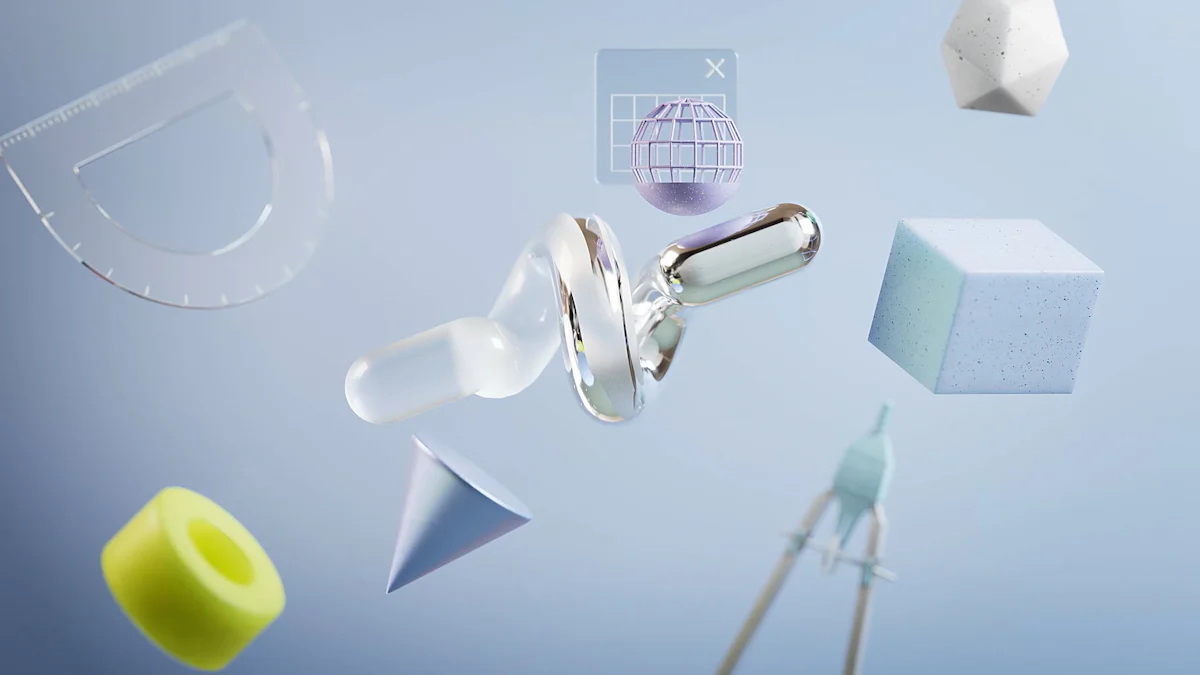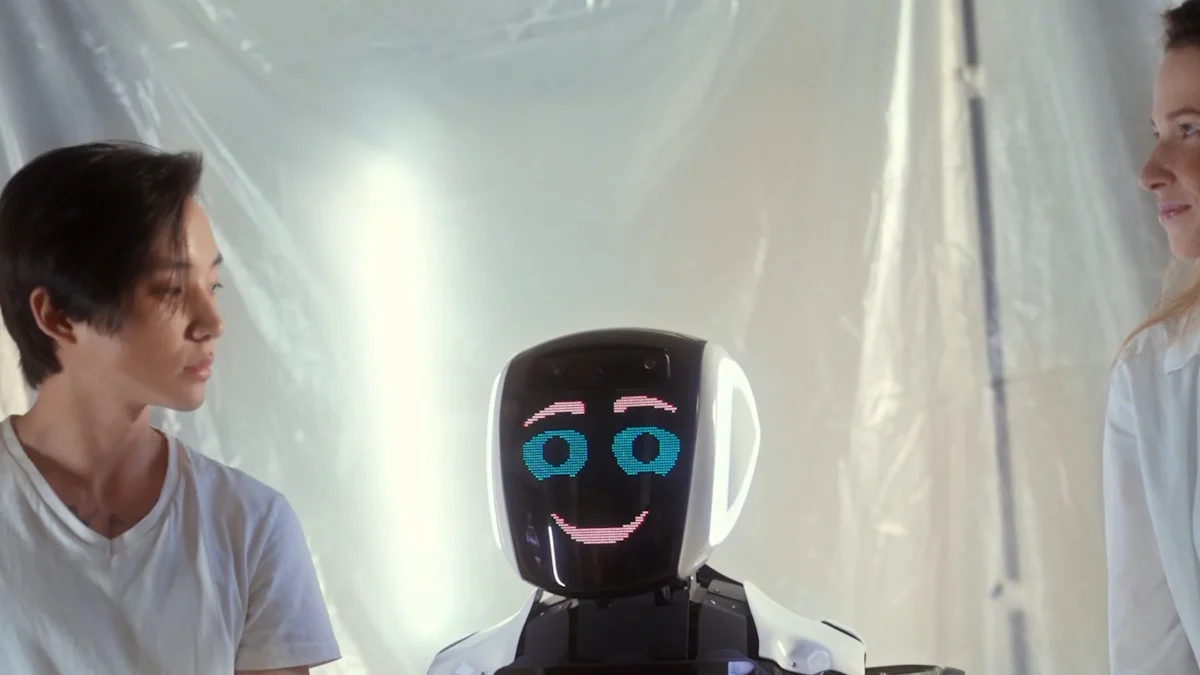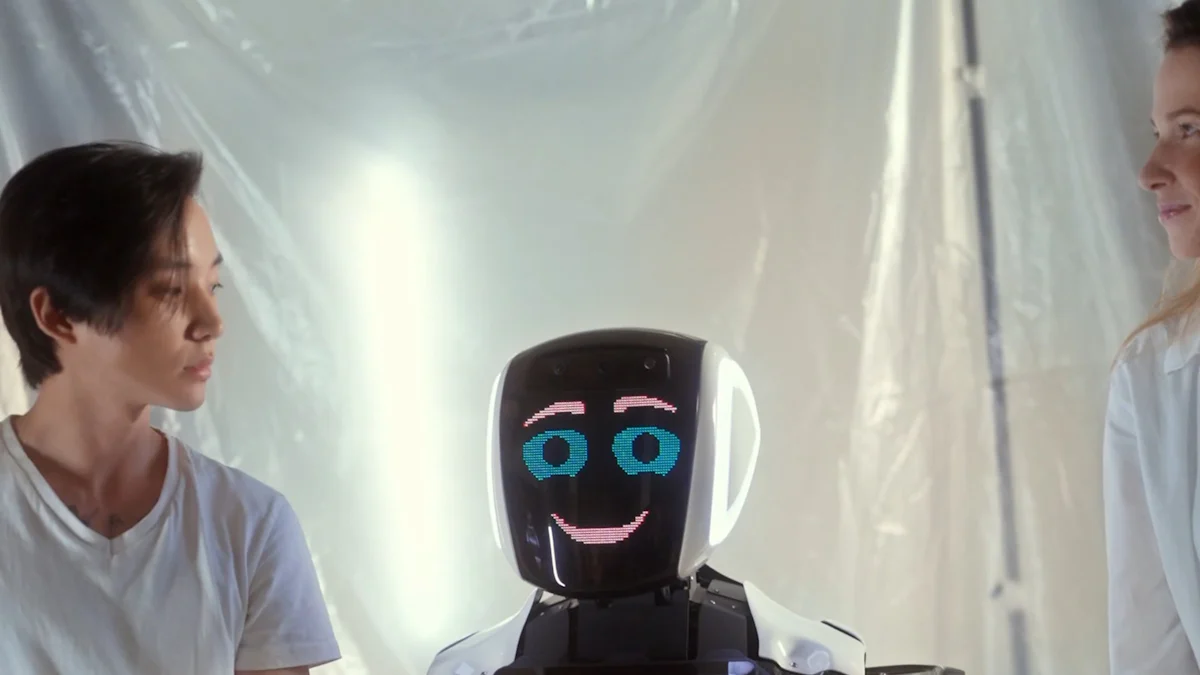Generative AI and the Future of Relationships

Generative AI is changing the way you think about relationships. This technology can create realistic conversations and even simulate people, offering companionship and emotional intimacy. Relationships have always been crucial in human society, providing support and connection. Now, AI companions are stepping in, challenging traditional ideas of love and friendship. They offer support and companionship, traditionally forged through human interaction. As you explore this new frontier, consider how AI might supplement or even replace some aspects of human relationships, reshaping your understanding of emotional connections.
Understanding Generative AI
Definition and Capabilities
What is Generative AI?
Generative AI is a type of artificial intelligence that can create new content. It mimics human creativity by generating text, images, music, and more. You might have seen it in action when using apps that suggest text or create art from simple prompts. This technology learns from vast amounts of data, allowing it to produce content that feels authentic and original.
Key technologies and tools
Several technologies power generative AI. Neural networks, especially deep learning models, play a crucial role. These networks process information much like the human brain, enabling AI to understand and generate complex patterns. Tools like GPT (Generative Pre-trained Transformer) and DALL-E are popular examples. They help you create text and images with remarkable accuracy and creativity.
Current Applications
AI in creative industries
Generative AI is revolutionizing creative fields. It assists artists, musicians, and writers by offering new ways to express ideas. For instance, AI can compose music, design graphics, and even write stories. According to a study published in AIJourn in 2024, this technology redefines creativity and innovation across various sectors, including graphic design and film production. Businesses and professionals now have new opportunities for content creation, as highlighted by the Harvard Business Review in 2022.
AI in communication platforms
Communication platforms also benefit from generative AI. It enhances how you interact online by personalizing messages and improving language translation. AI chatbots, for example, provide instant customer support, making interactions smoother and more efficient. In the dating landscape, AI offers tailored advice to strengthen relationships by exploring psychological compatibility and lifestyle preferences, as noted in a study from GSDVS. This technology adapts to individual users, memorizing context and taking on roles like a designer or copywriter, as reported by More Than Digital.
The Impact of Generative AI on Relationships

Generative AI is reshaping how you connect with others. It brings both positive and negative impacts to your relationships. Let's dive into these changes.
Positive Impacts
Enhancing communication
Generative AI enhances your communication by making it more efficient and personalized. Imagine chatting with someone who understands your tone and style. AI can do that. It analyzes your past interactions and tailors responses that feel natural and engaging. This technology helps you express yourself better, whether you're texting a friend or emailing a colleague. You can even use AI to translate languages instantly, breaking down language barriers and making global communication smoother.
Bridging cultural gaps
Generative AI also plays a role in bridging cultural gaps. It provides insights into different cultures, helping you understand diverse perspectives. AI can suggest culturally relevant content, like articles or videos, that broaden your horizons. When you interact with people from different backgrounds, AI offers context and suggestions to make your conversations more meaningful. This fosters empathy and understanding, bringing people closer together despite their differences.
Negative Impacts
Privacy concerns
However, Generative AI raises privacy concerns. When you use AI-powered tools, they collect data about your preferences and habits. This data helps improve the AI's performance, but it also poses risks. You might worry about who has access to your information and how it's used. Companies must ensure that your data remains secure and private. It's crucial to stay informed about how your data is handled and to choose services that prioritize your privacy.
Dependency on technology
Another downside is the potential dependency on technology. As Generative AI becomes more integrated into your daily life, you might rely on it too much. This reliance can affect your ability to communicate without AI assistance. You may find it challenging to engage in face-to-face conversations or express emotions naturally. It's important to strike a balance between using AI as a tool and maintaining your interpersonal skills. Remember, human connections are irreplaceable, and technology should enhance, not replace, them.
Generative AI offers exciting possibilities for enhancing relationships, but it's essential to be aware of its challenges. By understanding both the benefits and drawbacks, you can make informed decisions about how to incorporate AI into your life.
Case Studies and Examples
Generative AI is transforming how you experience relationships, especially in the realm of online dating and long-distance connections. Let's explore some real-world examples to see how this technology is making waves.
AI in Online Dating
Online dating has seen a significant shift with the introduction of Generative AI. This technology analyzes emotional intelligence and compatibility, reshaping how you connect with potential partners.
Success stories
Many users have found success in online dating thanks to Generative AI. By analyzing communication patterns and shared values, AI predicts long-term compatibility. Imagine an app that understands your preferences and suggests matches that align with your personality. This approach has led to countless happy relationships. People appreciate the personalized experience, which feels more genuine and tailored to their needs. AI's ability to learn from your interactions ensures that each suggestion is better than the last, increasing your chances of finding a meaningful connection.
Challenges faced
Despite its success, Generative AI in online dating faces challenges. One major concern is maintaining the human element in relationships. While AI can predict compatibility, it can't replace the nuances of human interaction. Some users worry about becoming too reliant on technology, losing the ability to connect naturally. Additionally, privacy concerns arise as AI collects data to improve its algorithms. You must remain vigilant about how your information is used and ensure that your privacy is protected.
AI in Long-Distance Relationships
Long-distance relationships have always been challenging, but Generative AI offers new tools to bridge the gap. These tools help you maintain a strong connection, even when miles apart.
Tools facilitating connection
Generative AI provides various tools to facilitate connection in long-distance relationships. Video calls and messaging apps now incorporate AI to enhance your communication. Imagine an AI assistant that schedules calls based on your time zones or suggests activities you can do together virtually. These tools make it easier to stay connected and share experiences, despite the distance. AI-driven platforms also offer personalized content, like playlists or movie recommendations, to enjoy together, creating shared moments that strengthen your bond.
Emotional implications
While these tools are beneficial, they also come with emotional implications. Relying on AI to maintain your relationship can lead to dependency. You might find it challenging to express emotions without technological assistance. It's crucial to balance using AI tools and nurturing your emotional connection. Remember, technology should support your relationship, not replace the human touch. Generative AI can enhance your experience, but it's essential to keep the emotional aspect alive.
Generative AI is revolutionizing how you navigate relationships, offering exciting possibilities and challenges. By understanding its impact, you can make informed decisions about incorporating AI into your love life.
Future Implications and Predictions

Generative AI is not just a technological advancement; it's a catalyst for change in how you perceive relationships. As this technology evolves, it will inevitably influence social norms and ethical considerations.
Evolving Social Norms
Changes in relationship dynamics
Generative AI is reshaping the dynamics of relationships. You might find yourself interacting with AI companions that offer emotional support and companionship. These AI entities can simulate human-like interactions, which may lead you to form attachments. This shift raises questions about the nature of empathy and affection. Can an AI truly understand your emotions, or is it merely mimicking them? As you navigate these new dynamics, consider how AI might alter your expectations of human relationships.
New forms of relationships
With Generative AI, new forms of relationships are emerging. You might engage with AI in ways that were once unimaginable. Imagine having an AI partner that understands your needs and preferences. This could lead to relationships that blend human and AI interactions. While this offers exciting possibilities, it also challenges traditional notions of love and companionship. You must reflect on what it means to connect with an entity that lacks genuine emotions.
Ethical Considerations
AI and consent
The integration of Generative AI into relationships brings ethical considerations to the forefront. One major concern is consent. When interacting with AI, you must consider whether the AI can truly consent to a relationship. This raises philosophical questions about the nature of consent and autonomy. As you explore these interactions, it's crucial to ensure that ethical guidelines are in place to protect both human and AI entities.
Balancing human and AI interactions
Balancing human and AI interactions is another ethical challenge. You might find yourself relying on AI for emotional support, which could impact your real-life relationships. The risk of forming emotional affairs with AI entities is a genuine concern. It's essential to maintain a balance between AI interactions and human connections. Remember, while AI can enhance your experiences, it should not replace the depth of human relationships.
Generative AI is transforming the landscape of relationships, offering both opportunities and challenges. As you embrace this technology, consider the evolving social norms and ethical implications. By understanding these factors, you can make informed decisions about how to integrate AI into your life.
In this exploration of Generative AI, you've seen how it reshapes relationships. It enhances communication, bridges cultural gaps, and offers companionship. Yet, it also raises privacy concerns and risks dependency. As AI evolves, it will likely become more integrated into your life, offering new forms of relationships. However, remember that the heart of any relationship is human connection. Generative AI should enhance, not replace, this personal aspect. As you navigate this landscape, balance technology with genuine human interaction to maintain meaningful connections.
See Also
The Future of Creativity and Innovation with Generative AI
How Generative AI is Influencing Social Media Platforms
Exploring Virtual Labs' Future through Generative AI
